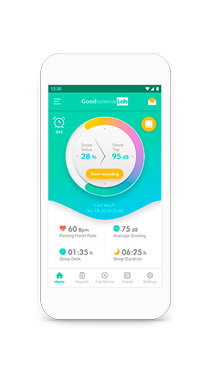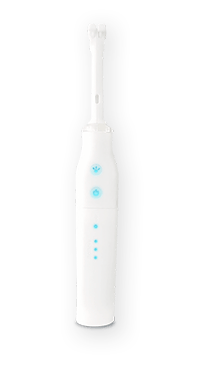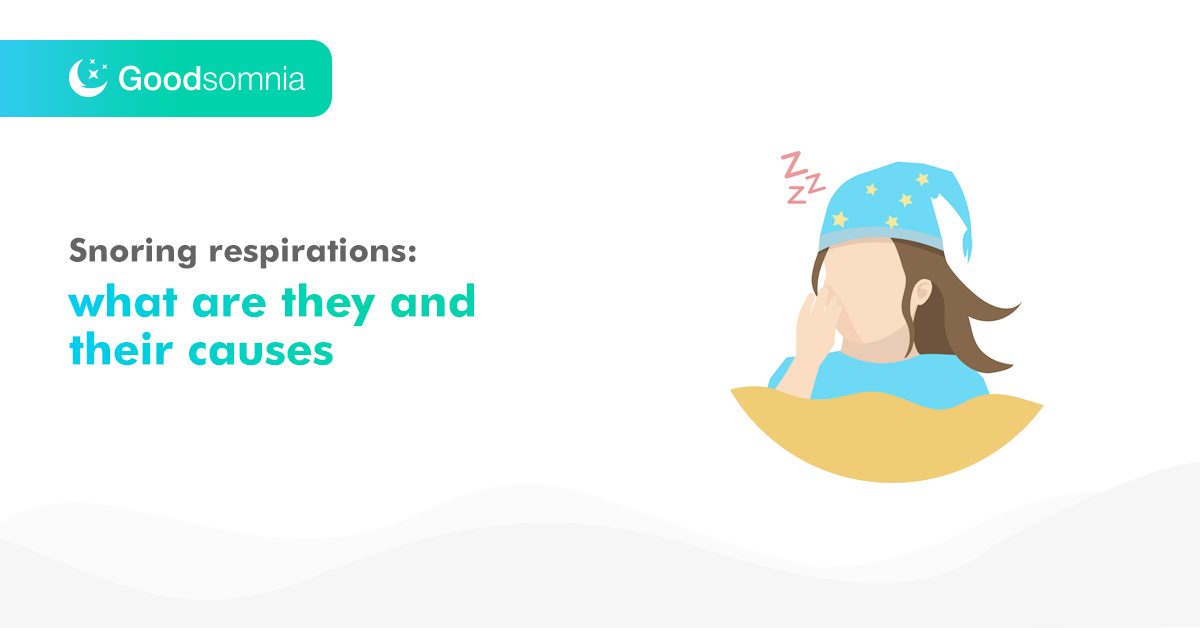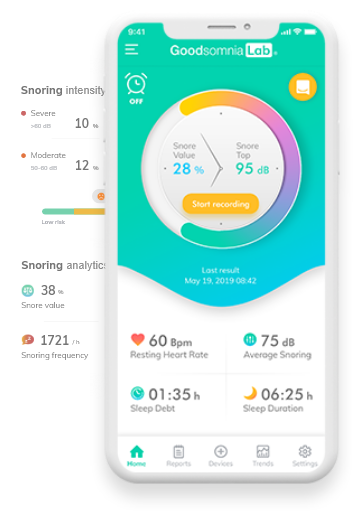Snoring can be defined in many words: noisy breathing, annoying sounds, gasping. But standing behind these are snoring respirations. Here we’ll tell you what they are, their causes and diagnoses.
What are snoring respirations
Studies suggest snoring respirations are vibrations caused by relaxing upper airways that partially close while you’re asleep. Snoring respirations are entwined with sleeping position, sleep stage, and whether we breathe through the nose or mouth.
Causes for snoring respirations
There’s no defined, universal cause for snoring respirations. Different types of snoring are caused by various factors. Here’s a list of different snoring sounds and their causes:
Nasal snoring: Often caused by airflow through the mouth, causing more vibration of tissues;
Gasping and choking: The reason is obstructed breathing and typical OSA symptoms;
Heavy snoring: This happens when nasal tissues and throat are blocked due to anatomical reasons or lifestyle. The position of your tongue can also influence smooth breathing.
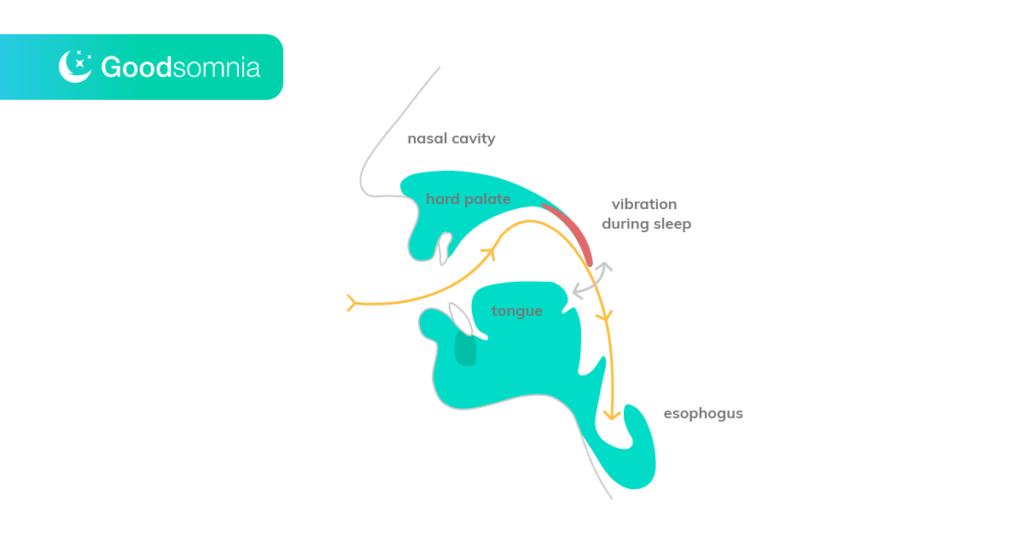 Diagnosing snoring
Diagnosing snoring
The best diagnosis of snoring respiration is to mix in-home snore monitoring and medical advice. For instance, you can either track your sleep with Goodsomnia Lab app that gathers the data about your snoring and sleep or ask a bed partner whether you snore.
As snoring can indicate significant upper airway pathophysiology, you should complete a polysomnography test, or sleep study, to reveal your snoring problems.
Snoring indicates a health problem, but it can be solved. So pay close attention to what causes snoring respirations and take care of your sleep.

